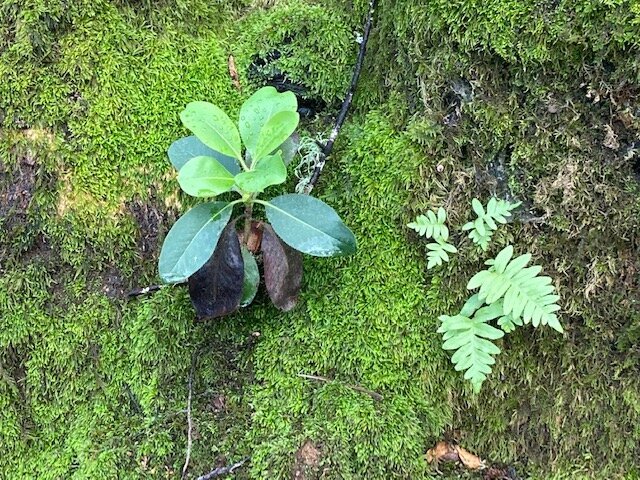SLOW DOWN: A MESSAGE FOR EARTH DAY
My husband and I had just completed a nine-mile loop of Annadel State Park and were dragging our feet up the steep hill from Spring Lake toward our car when we saw him. A small, helmet-less boy on a bicycle, maybe seven years old, spinning faster and faster. He clearly couldn't brake.
He flew past us and said, "Shit,” his expression a mix of panic for his situation and apology for the bad word. He hit one speed bump and wobbled precariously. Then, faster still, he sped into a second speed bump. The bicycle lifted in the air as he twisted sideways and crashed onto the tarmac.
Watching that little boy heading for disaster, aware that he was in trouble, but not knowing how to prevent it, elicited the same feelings of horror and helplessness I often feel in the face of climate disaster. We are rushing at ever increasing speeds toward a calamitous end. And , like that little boy, we don’t seem to know where the brakes are.
We humans are juveniles in evolutionary term, and yet our technologies give us almost godlike powers. We wield those technologies heedlessly and with little awareness of the consequences. We simply pedal faster, more furiously, and hope for the best.
The planet throws up speed bumps: wildfires, ocean acidification, erratic weather patterns, the erosion of top soil, and on and on, trying to get our attention, and we just keep on spinning, more out of control than ever.
Like little children, we may look toward governing bodies, such as the United Nations, to save us. Aren’t they supposed to be the adults in the room? Or, we think, someone will invent that perfect technology that will make everything alright.
But what if the answer lies elsewhere? What if it involves slowing down production, consumption, and all the crazy busyness that a year of COVID has highlighted?
It won’t be easy. We are locked into a system that reinforces our downhill trajectory in the guise of rising affluence. Our Western Industrial and Techno-Utopian way of life is powered not only by the fossil fuel industry but by our own endless energy output. We can’t seem to take a breath.
I once heard Eve Ensler of Vagina Monologues fame say in an interview, “The antidote to rape is slowness.” I began to consider the trails that I hike every day. I have long noticed that hikers cause less damage than runners, who cause less damage than bicyclists, who cause less damage than the new electric bikes that zoom past at high speed.
The faster you move through life, the easier it is to run over a lizard, or a precious orchid, or crush an anthill—and not even notice. The easier it is, as well, to hurt a friend, destroy a relationship, cut down a forest, or devastate an ecosystem. In the midst of an unprecedented crisis, panic causes us to rush to solutions that often don’t serve the greater good or the wider Earth community.
But what if this Earth Day we honored the Earth by slowing down?
We might linger by a creek or rest against a tree. We might spend hours gazing at the sky. We might saunter barefoot on the grass. We might eat slow food and initiate slow, meandering conversations about what really matters. And in that slowness, in that deep quiet, in attuning our ears to the rhythms of nature, perhaps newer, fresher, less grandiose commitments might arise. Commitments to not keep powering up but to learning to slow down.
The little boy was screaming in pain and terror when I got to his side. Blood trickled from his skull. His sweatshirt had ridden up to reveal bloody grazes all over his torso. He kept clutching his head. I put a hand gently on his back and stroked it, saying over and over, “Sweetheart, it’s alright. It’s going to be alright. Your family is coming.” And they were. And, this time, it looked as if we were in luck. Scrapes, blood, soreness, but no irreparable damage.
Not this time.

